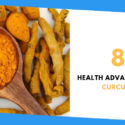7 Foods That Kids Need to Avoid During Summers

Parents face a lot of challenge when it comes to feed their kids. The specific food that their kids need to eat during specific climates and time always get checked by the parents. Hence, having the full information and knowledge about kids’ food chart, nutrition and diet is very crucial for parents. No wonder why, parents are always under a constant concern for their kids, especially the ones under the teenage. Usually, kids get stubborn demanding ice creams, icy cold drinks and shakes in winters which makes it hard for parents to make their kids understand the disadvantages of having cold food in the cold climates. Similarly, there are certain foods that should be avoided in other climates such as summers or monsoon as they can instantly affect their immune system resulting in sickness.
So, summer is here already and for the all the parents out there who are struggling to make their kids eat healthy in this season, we have come up with some useful information which is the foods that kids need to avoid during summers for unaffected immune system keeping the sickness at bay. Here are they:
1. Spicy foods

Hot and spicy foods that are loaded with too much of spice, chillies, chilli powder, garlic, ginger, onion are more likely to raise body temperature that directly cause sweating and burning in stomach and chest leading to acidity and digestion issues as well. Therefore, it is good to avoid spicy food in summers.
2. Soft drinks

People might think soda and soft sugary drinks are fulfilling for your thirst, but aerated and sugary drinks actually dehydrate you more. The sugar and caffeine content in the soda and soft drinks don’t really replace any fluid lost in your body via sweating as it does more harm to your body also without providing any good.
3. Street foods

Street foods are clearly the junk foods loaded with rich amount of unhealthy fats, oil, spice. Foods such as chicken nuggets, potato chips, pizza slices, burgers, and French fries should be avoided during summers that don’t have to put your digestive system on work-load which is one of the foods that kids need to avoid during summer.
Recommended: 9 Common Daily Foods That Are The Mood Spoilers
4. Rich non-vegetarian food

Non-vegetarian foods are naturally heavy on your digestive system and also generate heat in your body. Plus, the dishes with rich spicy gravies or oily chicken and fish or red meat can add to the body heat for children in summer. And that increased body heat can make them sweat as well as feel upset stomach. Thus, instead you parents can give them leafy greens and fruits to lower their body heat down.
Recommended: 9 Foods to Add to Your Diet for a Healthy Uterus
5. Ginger and garlic

Ginger and garlic are hot by nature as they are used for their significant effect in treating cold symptoms. Together they can cause extra heat in your body and even garlic as well, as garlic consumption increases bile and heat in the body. And summers are usually a fun time for kids along with summer camps and outdoor games, thus, try to avoid garlic and ginger for their diet.
6. Spring onions

Green onions, also known as scallions or spring onions are hot and pungent by nature which is why they make you sweat a little and eating spring onions in summers can make you feel a bit hot and even create heat effect in your body leading to digestion problems, which is one of the foods that kids need to avoid during summers.
Recommended: 8 Foods That Can Make You Feel Drowsy
7. Mangoes

Fruits like mangoes, apples and oranges are considered as naturally hot foods and excessive consumption of these fruits can cause irritation in the stomach. Traditionally, mangoes are soaked in water for few hours to let them cool down before consumption. No wonder why, easting too much mangoes sometimes cause diarrhoea and stomach ache.
You may like this
Recommended For You
12 Absolute Natural Ways To Prevent Diabetes
Priyadarshini Muduli
A full time passionate writer with imperishable determination to bring healthy, smart and pragmatic changes individually and socially. Concentrate especially on lifestyle, life and personal improvement, relationships, mental health and behavior, viral issues and literature based subjects.



